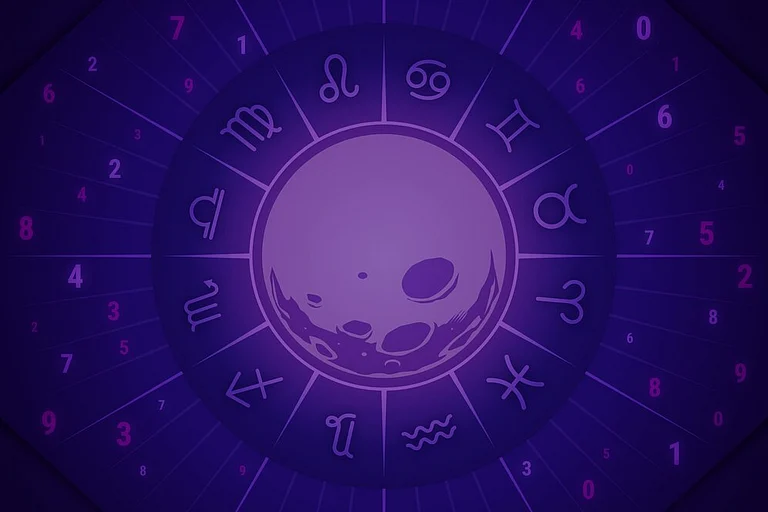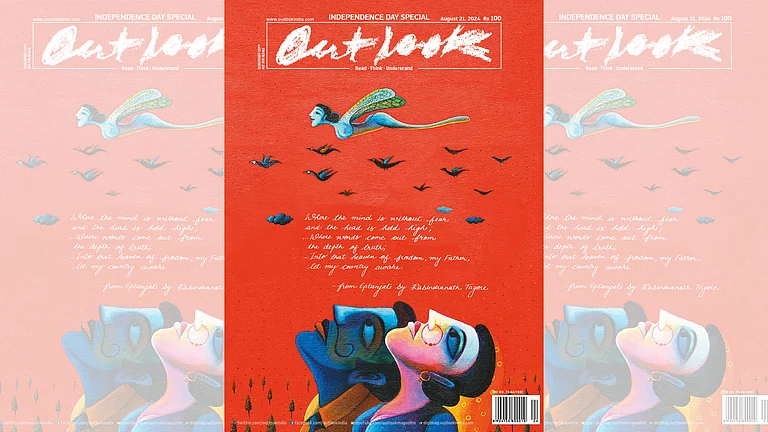He would appear typically bare-chested in public venues while rendering revolutionary songs, but what Gaddar stripped himself of the other day came as a surprise to many: the Telugu balladeer has given up Maoism. On April 6, exactly two decades after he survived a murder attempt, the sexagenarian announced embracing democracy. “I have applied for my vote,” he said aloud, waving a voter registration form. “I have no membership with any party. I am only a common man with the freedom to decide my path,” he told a Hyderabad gathering in a voice and tone that resounded with pain as well as relief.
Hundreds of Naxalites have over the years surrendered before the law, yet Gaddar’s decision to snap his four-decade association with the Maoist party was least routine news. For, it also implied his exit from the Jana Natya Mandali (JNM), a Leftist cultural front he founded and led passionately. For long, central India’s most popular Naxalite’s JNM tours were a celebration of hundreds of soulful, earthy songs that stirred the minds of thousands of educated youth and the downtrodden, who either joined the armed resistance against the state or turned sympathetic to the class struggle.

Gaddar was born in 1949 to a Dalit family of rural labourers in what is now Medak district of west-central Telangana. Gummadi Vittal Rao was the name of the boy who was raised in remote Toopran village. As a youth, he enrolled in Osmania University for an engineering course, but dropped out, inspired by Naxalbari politics. In the late 1970s, Gaddar worked with the Canara Bank for a few years—only to return to the ultra-Left movement.
It was in 1972 that Gaddar formed the JNM in association with filmmaker B. Narsing Rao of the parallel cinema movement. “The main group consisted of 15-20 people, in which Gaddar was the most prominent performer,” says Rao, who made the famous movie Maa Bhoomi (Our Land) and has gradually detached from JNM activities. “A gifted singer, Gaddar would also write songs that I used to edit.” The Bandenaka bandi katti song (symbolising the 1946-51 peasant-class fight against the Nizam) that Gaddar performed in the 1980 film continues to make an impact on Telangana’s old and the young alike.
The JNM troupe—it was initially named the Art Lovers Association—went on to adapt Telangana folk arts like the Oggu Katha (story recital), Veedhi Bhagotham (street plays with song and dance) and Dappu (drumbeat) to highlight the societal unevenness and appeal to the subjugated classes to organise along the path of revolution. Social thinker Mallepalli Laxmaiah gives the example of Yalaro ee madiga bathuku (What use is this Dalit life) to point out how Gaddar songs underlined a caste oppression in Telangana to motivate the Scheduled Castes and Other Backward Castes to support the Naxal movement. “Caste oppression and exploitation of the lower castes through vetti (free labour) by the forward castes, especially the Velama (a landowning community), are the reasons for a massive support Naxalites received from the lower castes of Telangana starting from the late 1960s,” says Laxmaiah, who is chairman of the Centre for Dalit Studies in Hyderabad. This, when the first-rung Naxal leaders were all from the forward castes, Laxmaiah says, whereas the SCs and OBCs constituted only the foot soldiers.
Whenever the movement suffered setbacks, Gaddar’s songs typically reignited the embers. Podamuro janasena lo kalisi, podamuro errasenalo kalisi (Let’s move to join the people’s army; let’s move to join the red army) that he penned in the 1970s gave the youth a stimulus to adopt the militant life. Gaddar himself went underground between 1985 and ’90 to expand the party and find cadres in interior belts. In his trademark shirtless avatar, where a sheep-wool blanket would sling down his shoulder, Gaddar would wield a lathi tied with a red flag and anklet bells—and sing in a voice that reverberated in rebellion, fetching him a cult status.
On April 6, 1997, assailants fired shots on Gaddar at his Venkatapuram home in Secunderabad. The attack, which the balladeer believes was engineered by the police, proved to be near-fatal. A bullet is still stuck in his backbone, but it didn’t hinder him from continuing with the performances. Rao, now 71, terms as “unrivalled” Gaddar’s contribution to the popular culture and the revolution it created in Telangana. “For over four decades, Gaddar displayed exemplary courage and dedication to motivate the masses,” he notes.
The JNM inspired the formation of a similar initiative: the Chetana Natya Manch was founded in the Dandakaranya region in 2004. Several of Gaddar’s songs were translated into the south-central Dravidian language of Koya and performed by the CNM for the adivasis in Chhattisgarh.
When Outlook contacted, Gaddar declined to comment on his relationship with the JNM and his cultural contribution to the Naxal movement. “What’s the point of delving over the past now?” the ex-revolutionary said in a message communicated through his son Suryudu.
Analysts are indifferent to Gaddar’s latest foray. They point to the state of the Telangana Praja Front as a reason: the non-political outfit he launched in 2010, along with a few groups fighting for statehood, has been a nonstarter.
The April 6 public meeting saw Gaddar elucidating on his dissociation with the Maoists. “Originally, I am an Ambedkarite but was attracted to Naxalbari movement at the Osmania University. I paired both ideologies to take part in the movement—till yesterday,” he said. “But I had a debate with my parent party in which I opined that in addition to Marxist knowledge, we have to incorporate the ideologies of Bhimrao Ambedkar and (19th-century-reformer) Jyotirao Phule to the Indian context to liberate our society made up of caste and class.” “No enmity with anyone; it was only a mitra vyrudhyam (friendly contradiction). I finally decided to leave my mother-like party, with tears in my eyes,” Gaddar said warbling his famous song, Veerullara meeku yerrayerra dandalu (Red salutes to you heroes).
To wander out of the party line of allegiance is not new to Gaddar. He was suspended from the People’s War Group for six months in 1995 for an alleged “misuse of party name and funds for self-improvement”. The charges against him included selling revolutionary songs for cinema, collecting “donations” to establish the Mahabodhi Vidyalaya (a school near his house in Secunderabad), unapproved publishing of books and not accounting for the proceeds from the sale of JNM audio cassettes. Gaddar denied the allegations of embezzlement, but admitted, in media interviews then, that he did not solicit the approval of the party for the school or providing lyrics to movies like Orey Rickshaw.
A CPI(Maoist) activist says Gaddar “no doubt was hugely instrumental in the expansion” of the party and its ideology among the masses. “But he should have realised that no one is above the party,” he tells Outlook. “The party alone visualised his role; it’s not the other way round.”
Despite that temporary ban on him, the party reposed its faith in Gaddar when it proposed him as the Maoist emissary along with renowned Maoist writer-ideologue Varavara Rao for peace talks with the Andhra Pradesh government in 2002 and 2004. The negotiations failed, but, in August 2005, the Y.S. Rajasekhara Reddy government re-imposed the ban on the Maoists and Varavara’s Revolutionary Writers Association.
Varavara and writer Kalyan Rao, also a Maoist emissary in 2004, were arrested immediately, but Gaddar was untouched by the police. “Maybe the government feared a backlash from the public given his huge popularity,” a Maoist sympathiser opines. His fame has moderated in comparison to the millennial decades, but the balladeer is still a popular brand name that has the potential for a political foray.
In fact, Gaddar has announced plans to launch a political campaign soon. “I know that I urged you with my songs to boycott the polls. But it was to reject the exploiter,” Gaddar told the Hyderabad audience. “This vote that I am now asking for is for chaitanyam (consciousness), to bring about a socio-politically equitable Telangana.”
The ex-Maoist said he would not form a party, but plans to bring together all “like-minded” political parties that endorse Karl Marx, Phule (1827-90) and Ambedkar, the chief architect of the Indian Constitution. “I would be just a string that entwines these flowers.” The ageing balladeer has shelved a dogma he adhered far too long to endorse a contradictory belief now, but he appears to be firm on continuing with his song and dance. Gaddar’s fans only hope he doesn’t lose his beat.
By Prasad Nichenametla in Hyderabad
























